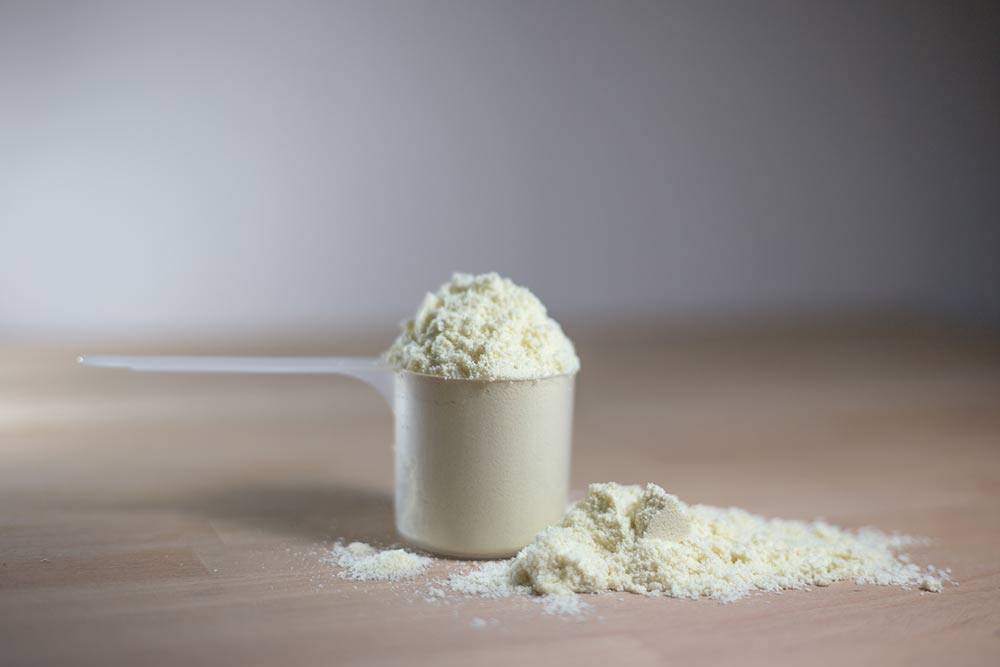Nutrition
5 Reasons Your Protein Shake Is Making You Feel Sick
Whey protein is no longer the reserve of muscle-bound gym jocks. It offers a plethora of benefits for every woman. Protein shakes are also quick, transportable and convenient, which makes them great meal replacements for anyone who’s busy. Plus, they reduce the symptoms of diabetes, eliminate allergies and help build lean muscle.
However, depending on how your whey protein is processed, you could struggle to digest it properly, since it’s a milk protein and you could be lactose intolerant. Common symptoms of this include gas, bloating, diarrhea and nausea.
Lactose varies depending upon the type of whey, which is processed into three forms: isolate, concentrate and hydrolysate. Whey concentrate is a less refined, less processed form of whey, which has a higher percentage of lactose. It also retains a higher percentage of fat and carbohydrates and less protein per serving.

Most people who are lactose intolerant, or who have adverse reactions to whey, usually get sick after trying whey concentrates. Whey isolates are almost lactose-free, while Your supplement regime might disagree with your digestion unless you look out for these warning signs.
Use them to make sure you’re maximizing the value from your protein powder hydrolyzed whey is lactose-free. The latter is fast-acting, highly-processed and so easily digestible.
Most people who are lactose intolerant can digest hydrolyzed whey with ease. But what if you can’t? What if even hydrolyzed whey protein bothers your stomach? Well, other ingredients in your protein could to be to blame, so look out for the potential triggers below.
1. Inulin
A natural fiber found in asparagus, jicama and onion. While it does have health benefits, if it’s eaten in such high amounts that your body can’t process it, you may suffer flatulence, diarrhea, stomach cramps or nausea. Fiber tolerance is highly individualized so if these symptoms sound familiar, inulin could be to blame.
2. Artificial sweeteners
Sucralose is well tolerated by most and stevia is usually considered the safest of all, but everyone reacts differently. Artificial sweeteners can make you experience dizziness or headaches. Again, see how your body reacts.
– RELATED: How To Get Protein As A Vegan –
3. Too much of a good thing
One shake a day might be fine for you, but three might not. When it comes to protein, more is not always better. On average, 0.75-1g of protein per pound of bodyweight is enough, but if you’re more active and leaner, you’ll need more protein. Whereas, if you’re overweight and don’t exercise, you’ll need less.
If you take in too much of any macronutrient the total volume of food may be fine but your digestive enzymes may not be able to cope. The resulting backlog of whey could cause indigestion, abdominal pains or bloating, until your body processes the accumulated protein.
Consider reducing the number of shakes you use, or use half-servings instead of full ones.

4. Too little H2O
Whey protein powder can also cause constipation if not drunk with enough water. Mix your protein thoroughly with plenty of water and drink lots of additional H2O before and after you drink your shake to assist your bowels.
5. Shake the smart way
Try different forms of whey in varying amounts to see what works best for you. While whey is an excellent source of protein, it’s not for everyone. Some people simply cannot tolerate even a high-quality hydrolyzed protein.
If that’s you, try alternative options like vegan powders, or rely on whole-foods to get your daily protein intake. You need to do what’s best for you because that’s how to achieve results specific to your body.
For more nutrition advice, sign up for the TRAIN for HER newsletter.






















